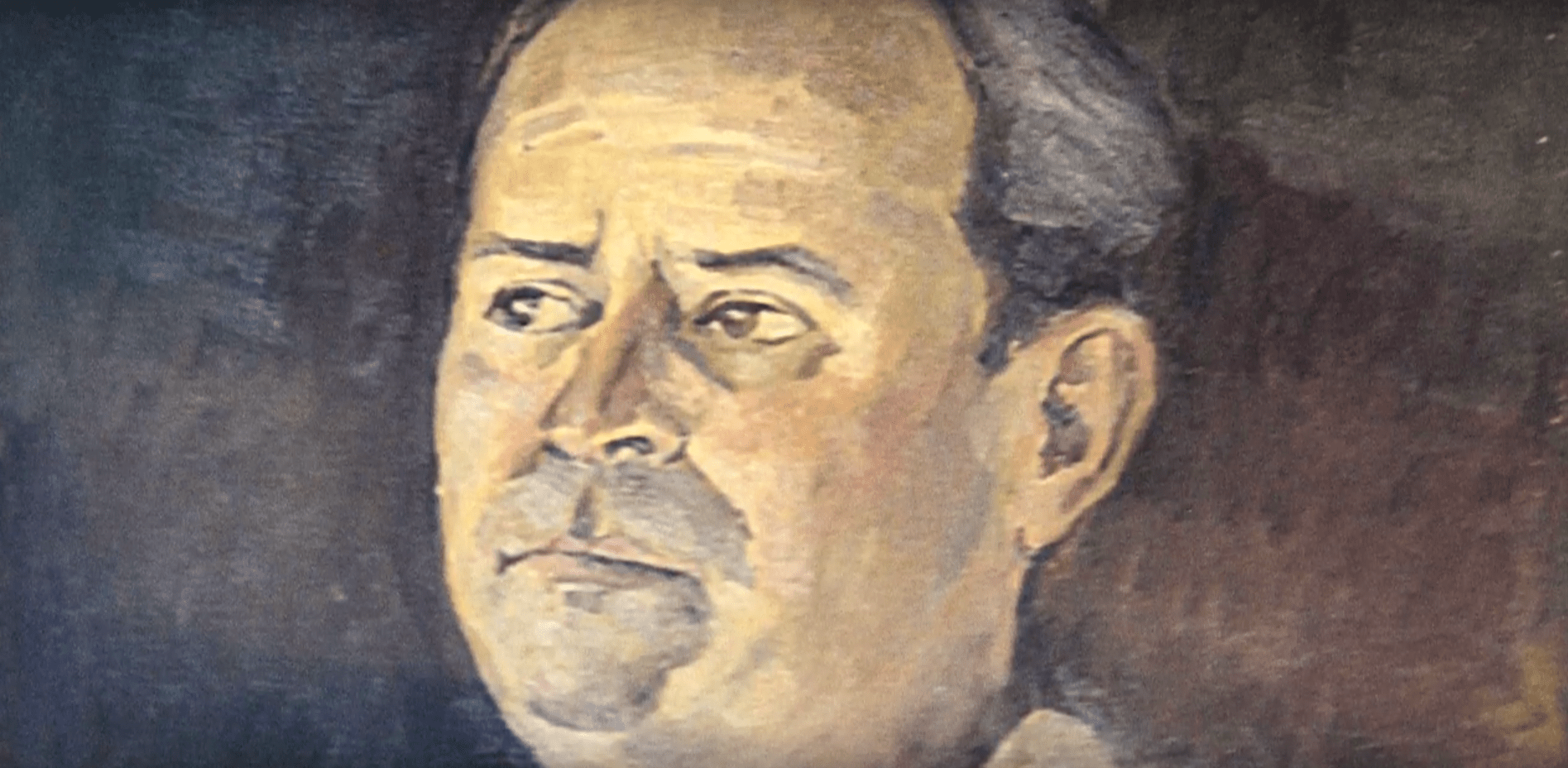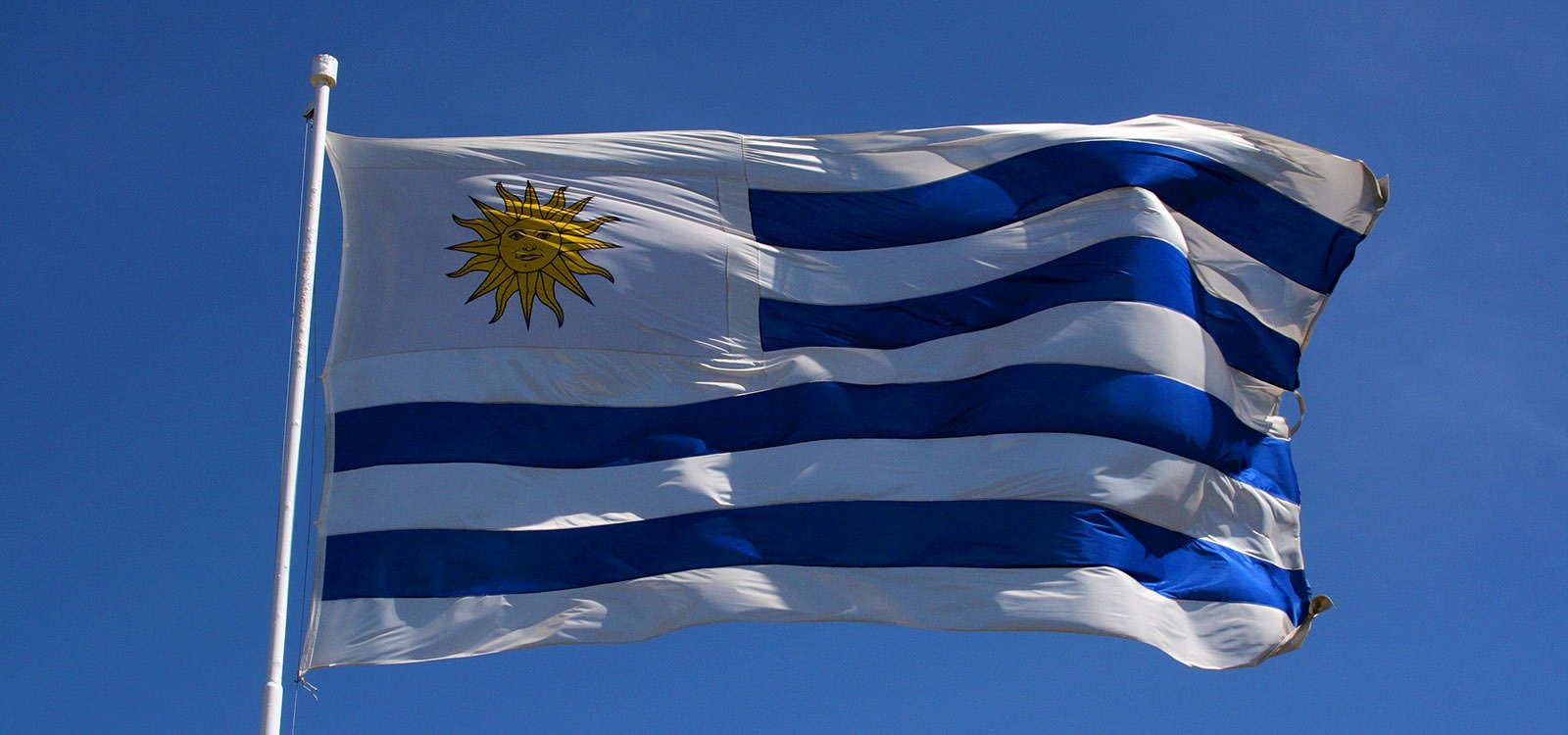
Biography
Álvaro Figueredo was born on September 6, 1907 in Pan de Azúcar, Maldonado, Uruguay, and lived his entire life in that city. Between the years 1924 and 1926, he moved to Montevideo to complete his secondary school studies and a degree in education. In 1927, he spent a year in Rincón de Olivera, a rural area, which had an indelible influence on his subsequent works.
In 1932 he graduated as a primary school teacher and in 1944, with a degree in Literature. In 1935, he married Amalia Barla, teacher and poet from Maldonado with whom he had two children: Álvaro Tell (“Yayo”) and Silvia Amalia (“Chispa”).
In 1936 he published his first book of poetry—Desvío de la estrella (Detour of the Star)—, and founded the literary periodical Mástil. Under his initiative, and in conjunction with Mástil, he was influential in the realization of the primer Congreso de Escritores del Interior (First Congress of Writers of the Interior), which took place in 1938 at the Ateneo in Montevideo. Fifty years later, in 1988, the Comisión de Cultura de Pan de Azúcar hosted the second Congreso Nacional de Escritores (Second National Congress of Writers) in the cities of Pan de Azúcar and Piriápolis.
In 1944, he went to Florida, Uruguay, in the southcentral part of the country, and read his work, “Canto a la Independencia Nacional” (Ode to National Independence), at the foot of the Piedra Alta.
In 1946, he traveled to Colonia, reciting there his “Oda a la Paz después de la Victoria” (Ode to Peace after Victory). During this time he also wrote “Canto a Iberoamérica,” which was distinguished with an honourable mention in the Juegos Florales de México (1946).
He contributed for many years to the educational magazine El Grillo, edited by the Departamento de Publicaciones del Consejo de Enseñanza Primaria Normal (Department of Publications of the Council of Primary Education). These articles were later collected in the volume Estampas de nuestra tierra (Pictures of Our Land), under the title “Diario de Goyito.” Also in 1946, he was awarded the first prize in the “Concurso anual entre maestros y profesores normalistas,” organized by that Council.
With the publication of his poem “Exaltación de Bartolomé Hidalgo” in 1952, he obtained first prize in the literary contest of the Ministerio de Instrucción Pública (Uruguayan Ministry of Public Education). In 1956, his second book of poetry was published, Mundo a la vez, and in 1964 he was designated a member of the Academia de Letras del Uruguay (the National Academy of Letters of Uruguay). His writings have been the subject of various literary and cultural critical studies.
Álvaro Figueredo was a poet, short story writer as well as an essayist on themes of pedagogy, philosophy and literature. He wrote essays about the literary words of José Enrique Rodó, Fracisco Espínola, Roberto Ibáñez, Sara de Ibáñez, María Eugenia Vaz Ferreira, Esther de Cáceres, José Martí, among others.
He died at his home in Pan de Azúcar on the afternoon of Wednesday, January 19, 1966. A stone sculpture was placed in the town plaza to stand as a memorial, and in later years was crowned with bust of Álvaro Figueredo, rendered by artist Robert Arriola.
In 1974, on the occasion of the centenary of the city of Pan de Azúcar, the Comisión pro-edición Obras de Álvaro Figueredo published the book Poesía with a posthumous anthology of Figueredo’s poetry. In 1977, the same commission edited a book of children’s poetry titled ABC del Gallito Verde, and was dedicated to Álvaro Figueredo’s grandchildren, by Amalia Barla de Figueredo. The high school and a street in Pan de Azúcar bear his name.
The poet’s house is now a Museum that holds exhibits with items from his life, family photographs, his study and book collection. It also houses antiques and other local objects collected by the citizens of Pan de Azúcar, such as stones and Indigenous arrows. In 2007 special celebrations were held there at the Casa de la Cultura y Museo Álvaro Figueredo
Family
Álvaro Figueredo married Amalia Barla on July 18, 1935, in Maldonado, Uruguay.
They had two children: Álvaro Tell and Silvia Amalia.
His son, Álvaro Tell, married Ana María Fraguas Alonso in 1959, and they emigrated to Canada in 1974.
They have four children: María del Luján, Anna Silvia, Álvaro Gabriel, and Martín Juan.
They all currently reside in Canada, except Anna Silvia, who resides in the United States with her husband, Douglas Sylvester, and their daughter, Darcy Aveline, who is Álvaro Figueredo’s great granddaughter.
Pan de Azúcar

